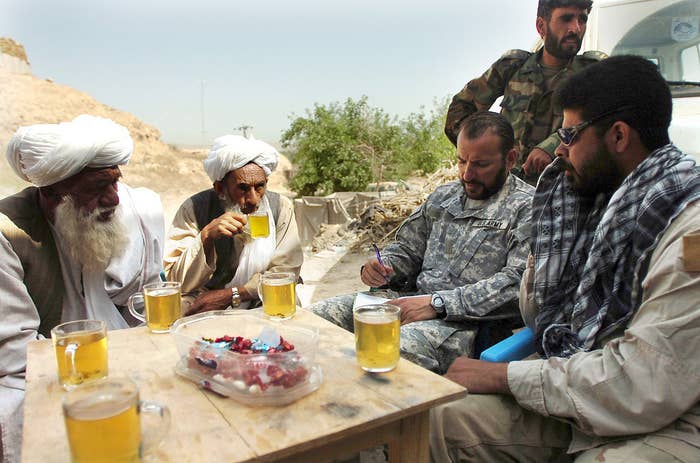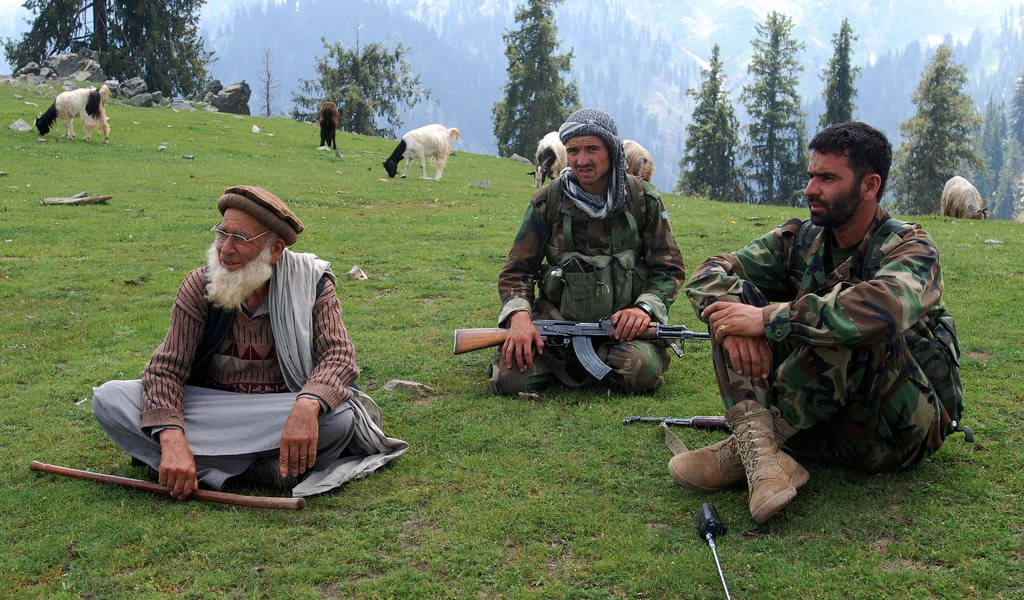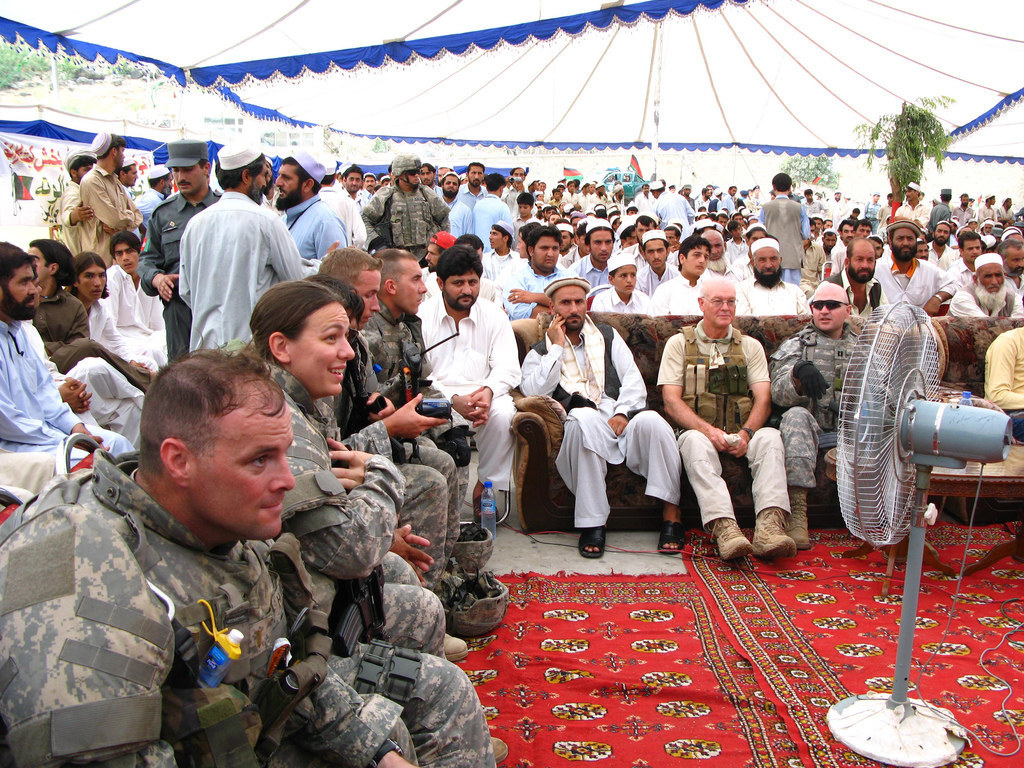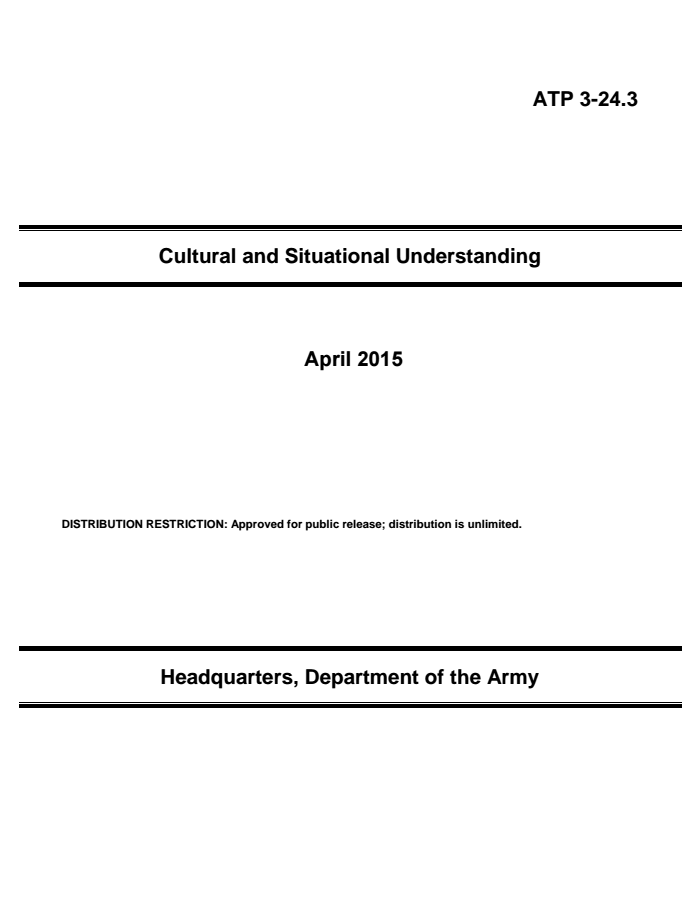
The U.S. Army withdrew its just-published "cultural understanding" manual for soldiers on Tuesday, after anthropologists and BuzzFeed News raised questions about plagiarism and botched explanations of culture in the document.
The "Army Training Program 3-24.3 Cultural and Situational Understanding" manual, produced by the U.S. Army's Combined Arms Center at Fort Leavenworth, Kansas, contained the military's doctrine — techniques and procedures — for soldiers dealing with non-American cultures.
"After taking a closer look at the content in ATP 3-24.3, we have pulled the ATP from circulation and it is no longer an approved doctrine publication," Bill Ackerly of the Mission Command Center of Excellence at Fort Leavenworth told BuzzFeed News by email on Tuesday. "The ATP will not be re-released until the content issue has been resolved."
After the manual was published last month, BuzzFeed News began asking anthropologists and military experts to review the 55-page document. They found it contained botched explanations — describing culture as a bewildering laundry list of everything from handshakes to religion — and that it was also rife with plagiarism.
"The money would be better spent on Lonely Planet guides," cultural anthropologist Roberto Gonzalez of San Jose State University told BuzzFeed News. "It's a relief to hear that the Army retracted the manual, but it does raise questions about how many more pieces of flawed or dangerous doctrine continue to exist."
It's good that the Army is at least thinking about other cultures in an era when U.S. military involvement in Afghanistan, if not Iraq, is winding down, Ben Connable, a retired Marine intelligence officer with the RAND Corporation in Santa Monica, California, told BuzzFeed News. But regardless of the intentions, the outcome was a disappointment, he added. "It is a bit of a jumbled mess that tries to incorporate too many disparate and sometimes conflicting ideas."
The Army repeatedly denied requests for comment from the manual's authors until today, when Ackerly announced the manual's withdrawal.
The Army plans to reissue the manual at an undetermined date, once it deals with the plagiarism and other problems identified by critics, Ackerly told BuzzFeed News.
The withdrawn manual’s problems begin with its first sentence: “Understanding culture is essential in conducting irregular warfare.”
The manual's view of culture is decades out of date, Connable said. "It really tries to bring culture down to a simplistic level that reads more like a business school manual."
It contains such insights as chewing gum irritates Germans, Singaporeans sound funny to Americans, and Africans dislike firm handshakes.
A bigger problem, he suggested, is the efforts to make soldiers think about culture as a one-size-fits-all thing. In its first chapter about family relationships, for example, the manual asks, "How does the kinship power system compare to a business or military organizational chart and structure?"
But trying to deal with a tribal leader or revolutionary as a businessman risks "dangerous oversimplification," Connable said. "Saddam Hussein — what was he, a businessman, a politician, a military leader, a tribal chief, a religious figure who organized Iraq along religious lines? If you see him as only one of those things, then it is obviously misleading."
What's more, the document's five chapters "present culture as a threat to be overcome to soldiers, which is a really self-defeating way to view culture," Robert Albro, an anthropologist at the American University in Washington, D.C., told BuzzFeed News.

Plagiarism also apparently plagues the withdrawn manual.
Earlier this month on the CounterPunch website, Gonzales noted a dozen instances of plagiarized text in the manual, including:
• In a section on religion, the manual lifts text from Allan Wood's 2009 book, Say No to Religion, which was critical of both homosexuality and Islam. Gonzalez called it a "bewildering" resource for a manual on understanding other cultures.
• A Washington State University online tutorial called "What Is Culture" seems to have provided basic text throughout the manual.
• A section on "Perception of Time" not only copied, but misspelled an academic paper's words — turning "monochronic" cultures, which regard time as fixed, into "monochromic" ones, meaning single-colored.
Although the frustration with plagiarism is understandable, Connable added, military manuals commonly lift information from other sources because they are intended to be practical guides, not academic texts.
But Gonzalez said the plagiarism points to a deeper intellectual deficit in the Army's thinking about culture. "I'd flunk a student who used sources this way," he said.

In 2006, at the height of the U.S. wars in Iraq and Afghanistan, the U.S. Army released its counterinsurgency guide.
That manual called for soldiers to economically and politically stabilize the local societies while they fought guerrilla wars, instead of focusing solely on combat.
The newly withdrawn cultural doctrine guide is essentially an add-on, nine years later, to that original counterinsurgency manual, which helped make a military icon out of Gen. David Petraeus. That first one also faced plagiarism complaints from academics, Albro noted, which he didn't see as a major problem.
The much bigger concern is that more than a decade after the U.S. Army invaded Afghanistan and Iraq, the Army is producing a "totally incoherent" manual on understanding other cultures, he said.
There are better ways to get soldiers to understand and appreciate cultural distinctions, Gonzalez said, such as participating in humanitarian missions to combat Ebola in Africa. "Just enrolling them in an anthropology class at a community college would be more helpful than this manual."

